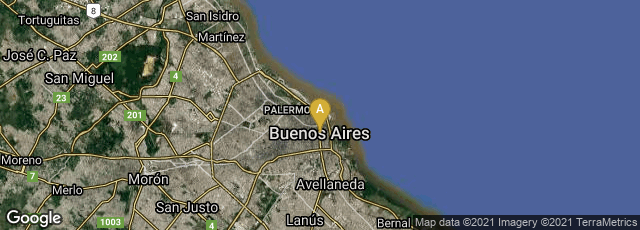

A: San Nicolás, Buenos Aires, Argentina
In 1941 Argentine writer and librarian Jorge Luis Borges published the short story La biblioteca de Babel (The Library of Babel) in his collection of stories entitled El Jardín de senderos que se bifurcan (The Garden of Forking Paths) in Buenos-Aires through the publishing house of Editorial Sur.
In 1944 the entire 1941 book was included in his Ficciones (1944), through which it received much larger circulation. In 1962 two different English-language translations of The Library of Babel appeared: one by James E. Irby in a collection of Borges's works entitled Labyrinths and the other by Anthony Kerrigan as part of a collaborative translation of the Ficciones. A new translation by Andrew Hurley appeared in 1998 as part of a translation of the Collected Fictions. Hurley's translation of The Library of Babel was republished separately in 2000 by David R. Godine with reproductions of eleven etchings by Erik Desmazières illustrating Borges' text.
Borges' story of a universe in the form of a library, or an imaginary universal library, has been viewed as a fictional or philosophical predictor of characteristics and criticisms of the Internet.
"Borges's narrator describes how his universe consists of an endless expanse of interlocking hexagonal rooms, each of which contains the bare necessities for human survival—and four walls of bookshelves. Though the order and content of the books is random and apparently completely meaningless, the inhabitants believe that the books contain every possible ordering of just a few basic characters (letters, spaces and punctuation marks). Though the majority of the books in this universe are pure gibberish, the library also must contain, somewhere, every coherent book ever written, or that might ever be written, and every possible permutation or slightly erroneous version of every one of those books. The narrator notes that the library must contain all useful information, including predictions of the future, biographies of any person, and translations of every book in all languages. Conversely, for many of the texts some language could be devised that would make it readable with any of a vast number of different contents.
"Despite — indeed, because of — this glut of information, all books are totally useless to the reader, leaving the librarians in a state of suicidal despair. However, Borges speculates on the existence of the 'Crimson Hexagon', containing a book that contains the log of all the other books; the librarian who reads it is akin to God" (Wikipedia article on The Library of Babel, accessed 05-25-2009).